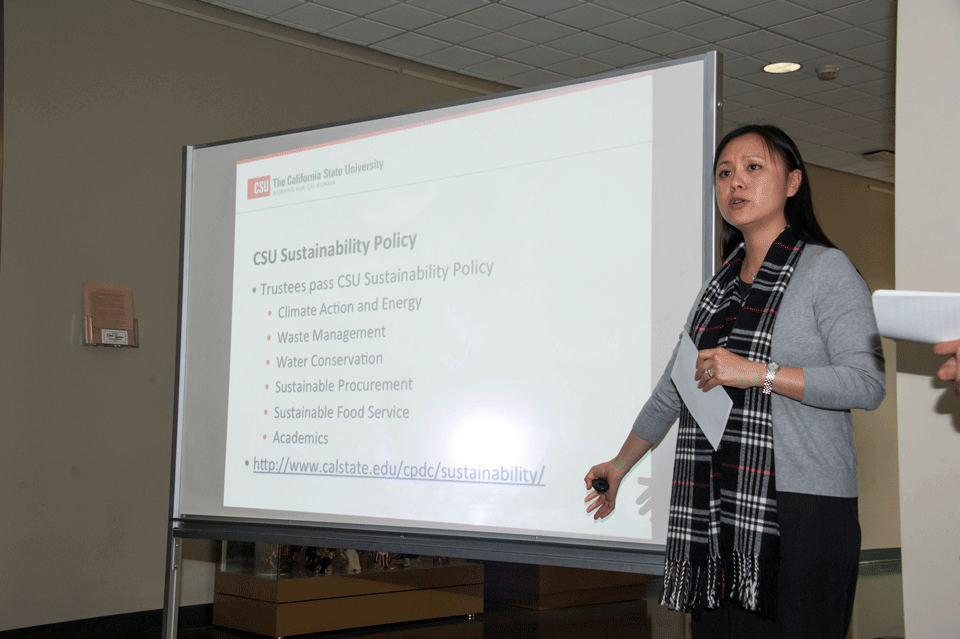The Real Food Challenge
The University Corporation at California State University, Northridge has taken an approach to help students adopt a more healthful eating lifestyle by joining the Real Food Challenge Campaign.
The student-run campaign team has been researching foods that can be categorized as “real foods” which are ecologically sound, humane and local.
During the Food, Nutrition and Health Public Policy Event on April 11 at CSUN the University Corporation presented its finished research.
“We finished that research and now we are able to look at all of our purchases and try to see where we can make some shifts,” said Karina Ward, Public Records Account Coordinator and Business Development from the University Corporation.
The campaign’s goal is to shift existing university budgets to more local and community-based food sources and to increase the percentage of “real foods” on campus.
“Our highest location for real foods is our Freudian Sip,” Ward said. “Our coffee is organic and it is locally roasted,”
Angie Tagtow, the executive director of the U.S Department of Agriculture Center for Nutrition Policy and Promotions is joining the efforts to increase more healthful eating habits. Tagtow was the keynote speaker for the public policy event in which she explained the benefits of the 2015 Dietary Guidelines for Americans.
“Americans are eating rather poorly and we have room for improvements,” Tagtow said.
The Dietary Guidelines are written for the professional audiences. However, along with the release of the guidelines was a consumer launch campaign called My Plate. The target audience for this campaign are families with young children in order to help them make shifts that will improve more healthful eating patterns, Tagtow said. My Plate offers ideas to create a more healthful eating style and offers multiple online tools for consumers.
Both Tagtow and the University Corporation are advocating for food, nutrition and public health.
“It’s important that we provide healthy foods for the campus community, and knowing where their foods come from,” Ward said.


 experience
experience